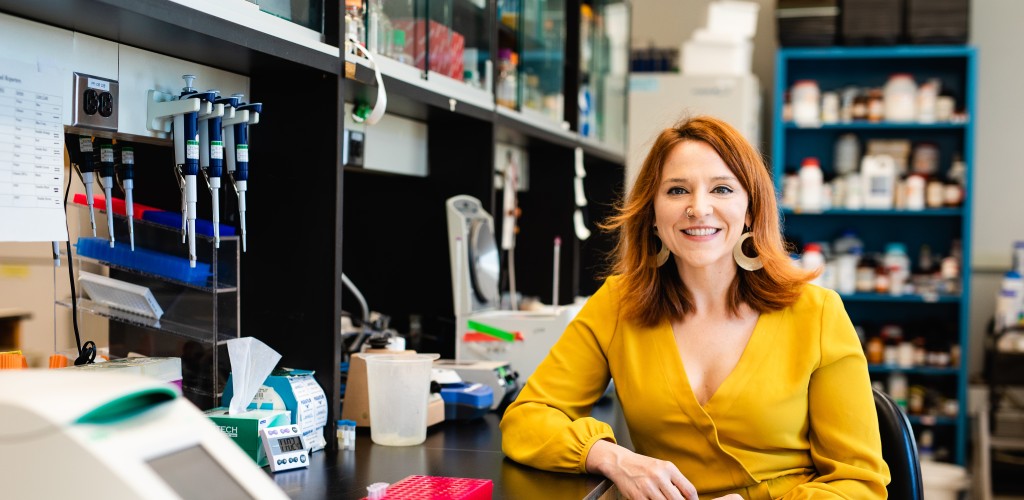What do you like to do when you’re not working? I love working with my hands and traveling. I am particularly fond of “re-making” and repairing practical objects, as well as curating and creating impractical objects/activities, such as music, art, and fiction.
Current outreach/extension projects: At UC Davis, I lead the junior genome research reading group. This group met quarterly to read articles on ‘omics’ research and discuss the nature of science. It consisted mainly of undergraduates from a variety of backgrounds. I also worked closely with tomato and potato growers of northern California to develop sustainable solutions for vector borne diseases. I am excited to establish similar projects at Cornell.
Three adjectives people might use to describe you: Creative, outgoing, curious.
What brought you to Cornell CALS? Cornell’s CALS is a world leader in the agricultural sciences, and it’s located in the vibrant city of Ithaca. Ithaca as a community is progressive, inclusive and gorgeous! I can’t think of a better place to conduct agricultural research and achieve my life goals.
What do you think is important for people to understand about your field? Plant-microbe interactions do not happen in isolation, but in complex communities. We need to broaden our understanding of the molecular mechanisms that mediate these interactions in complex communities if we are going to develop more sustainable controls for plant pathogens in the future.
If you had unlimited grant funding, what major problem in your field would you want to solve? In terms of research questions, I’d love figure out why some insects only transmit bacteria while others only transmit viruses—that would tell us a lot about the plant-insect-pathogen relationship. In broader social terms, diversity in science continues to be a problem that deserves funding.
What was your most valuable research experience when you were a student? I worked on a research project with a graduate student as an undergraduate at the University of Missouri. He was very encouraging and fun to work with. I met many scientists through this experience and discovered how science happens.
What’s the most surprising thing you’ve discovered about Cornell so far? I have heard there are underground tunnels that connect many of the buildings on Cornell campus, though I haven’t seen them for myself.
Meet all our new faculty





